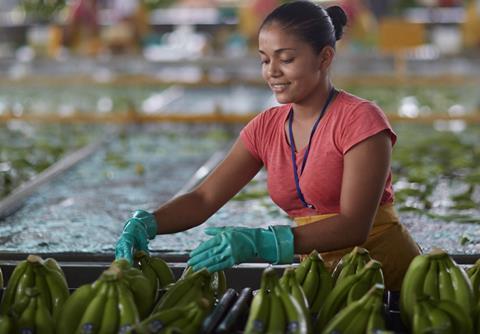Industry marks 30th anniversary of Banana Environmental Commission by setting out new green pledges
Thirty years after the creation of the Banana Environmental Commission (CAB), Costa Rica’s banana industry has renewed its commitment to sustainable production by signing up to a new series of undertakings to grow bananas in an environmentally responsible way.

The establishment of the CAB in 1992 marked Costa Rica out as a pioneer in sustainable production. The voluntary code – a public/private alliance between producers, workers and the government – committed to working in a more harmonious way with nature by setting targets on water and agrochemical usage, recycling and land conservation amongst other environmental concerns.
“Thirty years ago, Costa Rica pledged to conserve and respect the environment and the resulting policies have made a real difference to the way we farm bananas,” explains Jorge Sauma, general manager of national banana corporation Corbana.
“Today, 100 per cent of the plastic used for production is recycled, water usage at packing plants has been cut by 80-90 per cent, almost 70 per cent of our farms are carbon neutral – the aim being to reach 100 per cent in the next few years – and the banana industry has allocated more than 14,500ha of land as reserves and protected forests.”
The 12 pledges set out in the new environmental commitment are:
- · Respect national environmental and occupational health legislation
- · Promote environmental education amongst collaborators
- · Reduce industrial water consumption
- · Correctly manage wastewater
- · Reduce and progressively replace industrial plastics
- · Manage agrochemicals safely for both the environment and people
- · Continue the search for alternative tools to chemical pest control
- · Improve biodiversity in production areas
- · Respect the wild animals that pass through farms
- · Conserve forests to continue being a deforestation-free sector
- · Continue with the process of reducing greenhouse gas emission
- · Maintain internal audits on farms, seeking the best environmental performance
Beyond the environment, Sauma says Costa Rica’s commitment to social responsibility is equally important. For an industry that employs 40,000 people directly and 100,000 indirectly, strong worker welfare and is a major contributor to rural development.
Sauma points out that as well as being paid a competitive salary, Costa Rican banana workers enjoy a range of benefits including health insurance and educational programmes for families, things not taken into account by living wage certification schemes.
“It’s important to understand that the concept of a living wage is not only about the wage itself, but also encompasses things such as healthcare, social security coverage and job security,” Sauma explains.



